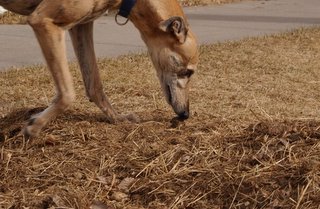
Cameron, a reader of the blog, has a different soil-building tip:
I have tried alfalfa pellets but I must say that they don't work quite as well as owl pellets. My Grandfather used owl pellets exclusively and he was the annual winner of Ionia County, MI biggest pumpkin award for 16 years in a row. He believed that it was the rodentia bones and leftover pieces that made the pumpkins so huge. He also told a story about this time that he almost died in the war.




